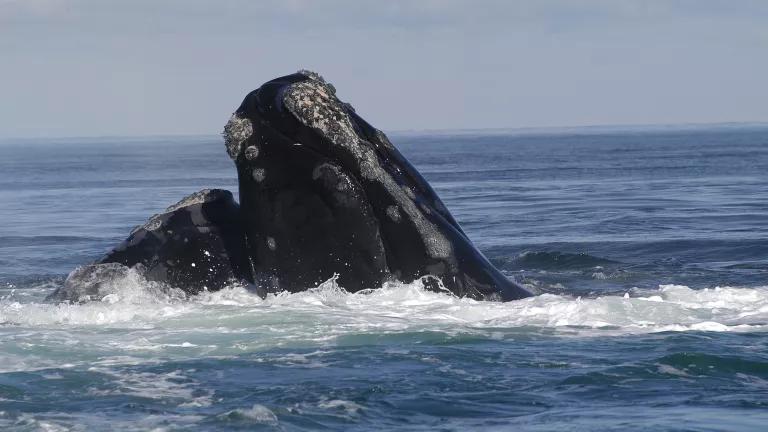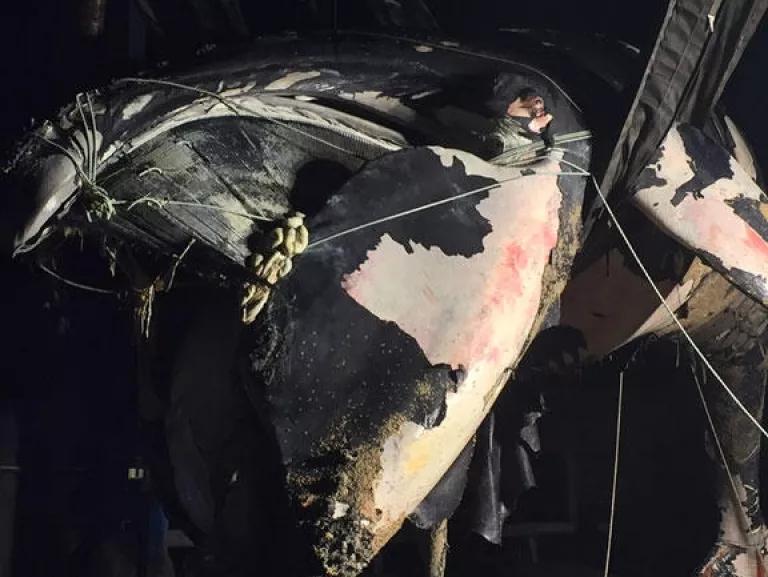Maine Lobster Fishery Loses Sustainable Seafood Label

The Marine Stewardship Council (MSC) has suspended its certification of the Gulf of Maine lobster fishery after determining that the fishery was potentially jeopardizing the survival of the critically endangered North Atlantic right whale.
The suspension is a wakeup call for the industry and should lead the Maine lobster fishery and others to improve practices and better protect endangered species. The decision also highlights the power of how consumer labels can create change.
Consumers clearly need to have faith in the MSC certification process. An independent survey of seafood consumers commissioned by the Make Stewardship Count coalition—of which NRDC is a member—found that the vast majority want to know if the seafood they eat caused harm to whales and other wildlife. An incredible 78 percent of the 5,574 respondents said they would either stop buying MSC products or buy fewer products if they found that some MSC fisheries involved eco-unfriendly practices.
The MSC certification standard is currently undergoing a review, and one of the main topics to be evaluated is the label’s approach to endangered, threatened, and protected (ETP) species. This process has increasingly been scrutinized by marine scientists and conservationists, who believe that MSC is certifying fisheries with significant marine mammal and wildlife bycatch problems.
As more than 400 fisheries around the world have sought MSC certification, the economic and conservation implications of an under-protective standard cannot be understated.

The decision to suspend the MSC certification for the Gulf of Maine lobster fishery provides an opportunity for the fishery to implement protective standards to help put an end to North Atlantic right whale entanglements in Maine waters.
In April, a federal judge found that lobster fisheries on the East Coast, including in Maine, have been operating in violation of the Endangered Species Act (ESA).
This finding triggered an expedited audit of the Gulf of Maine lobster fishery by the MSC. Environmental groups, including NRDC, met with the assessment body to express concerns about the role of the Gulf of Maine lobster fishery i entanglements of North Atlantic right whales.
Only about 400 North Atlantic right whales remain. The death or serious injury of even a single right whale from entanglement is above what NOAA fisheries has determined is a biologically safe level for the species.
Since 2017, 31 individual right whales have been confirmed dead due to entanglement in fishing gear and vessel strikes, and another 10 are suffering from injuries so serious that they are unlikely to survive. Eighty-six percent of surviving right whales have scars showing they have been entangled in fishing gear at least once, and more than half have been entangled at least twice.

The suspension, which goes into effect on August 30 for the 16 client companies that comprise the MSC-certified Gulf of Maine lobster fishery, can only be lifted after the companies submit a “corrective action plan” that will ensure that right whale mortality is reduced to a level that will promote species survival.
We hope to see the corrective action plan include measures to advance testing and subsequent commercial deployment of ropeless fishing gear. This innovative technology not only has the potential to eliminate vertical lines from the water and therefore risk of entanglement, but also will allow the fishery and North Atlantic right whales to coexist.

